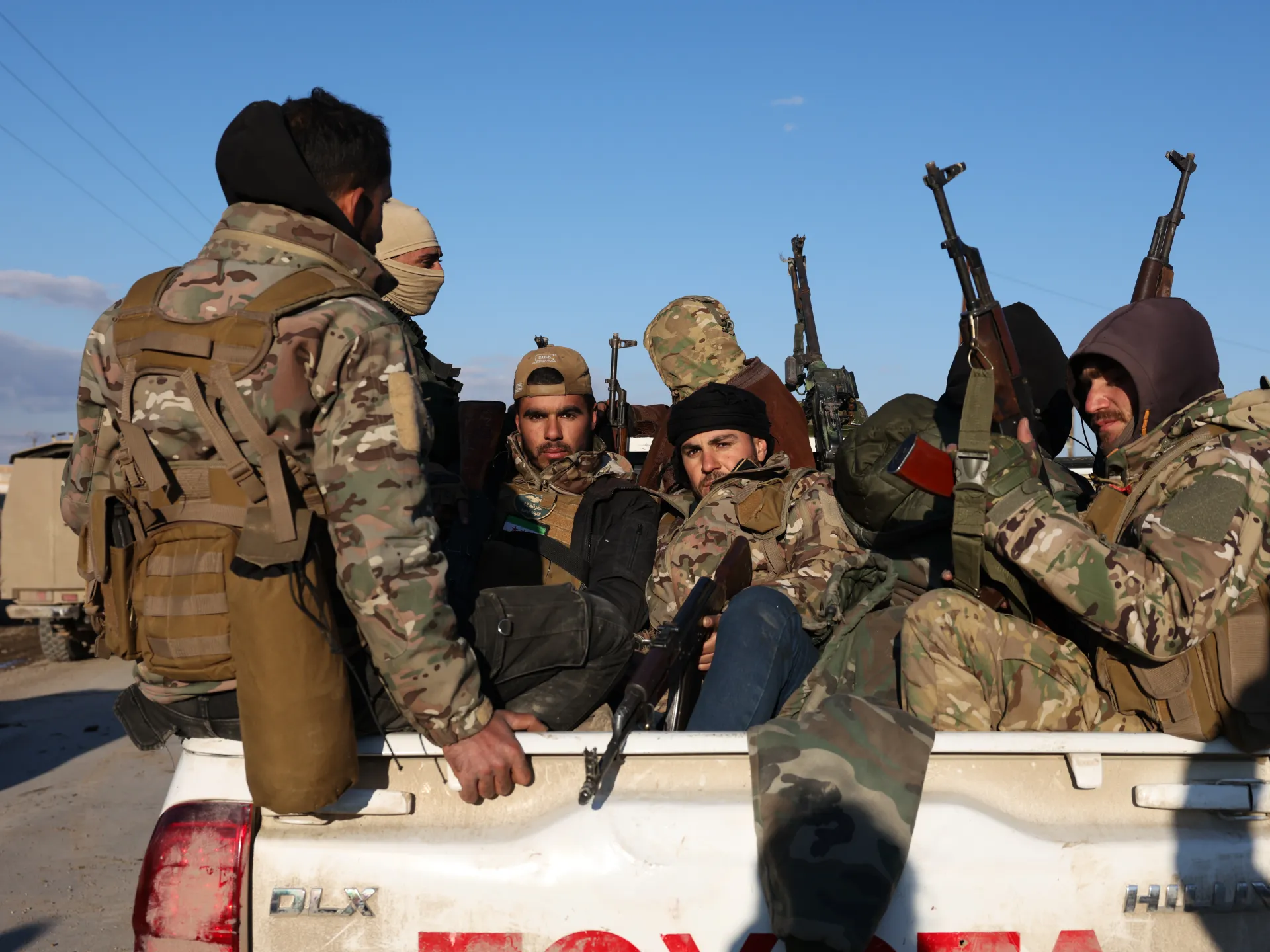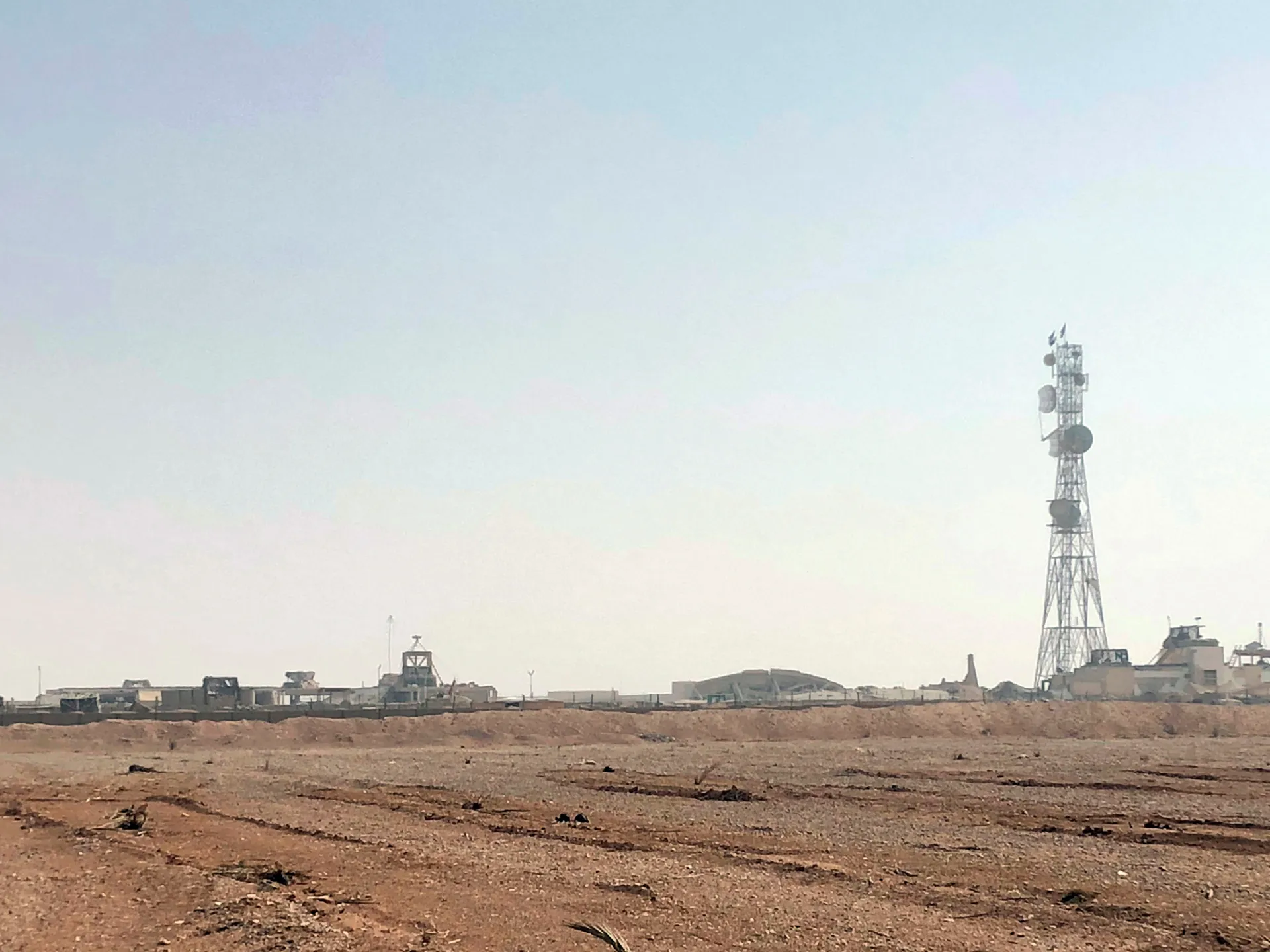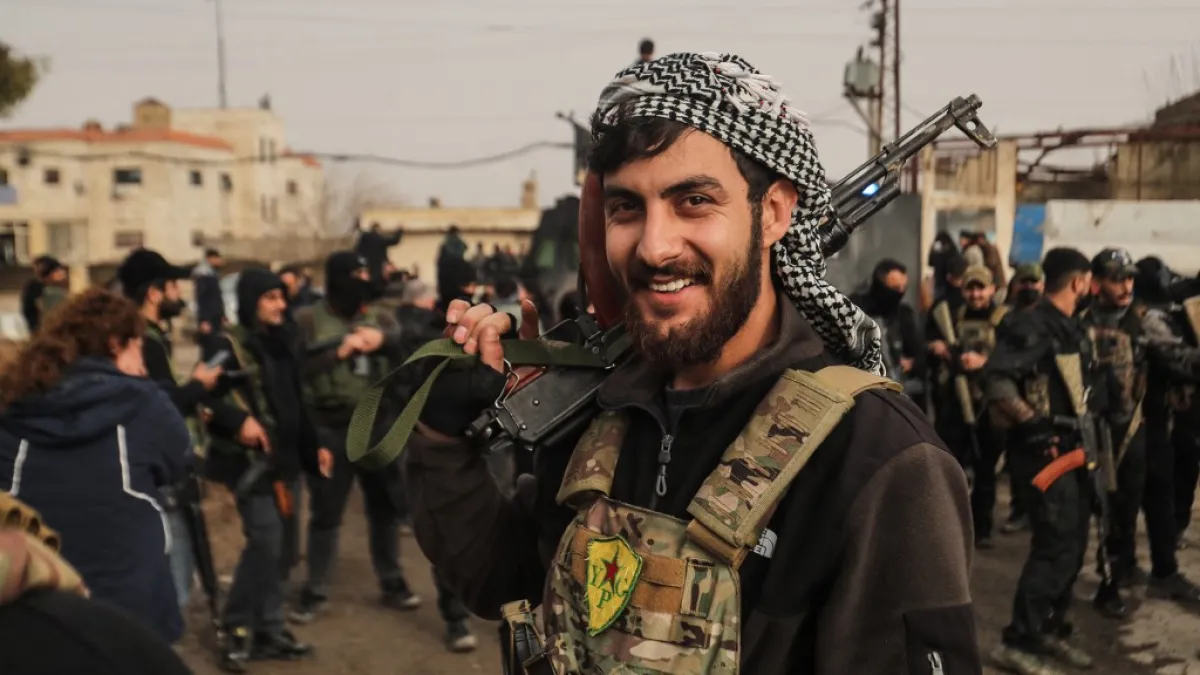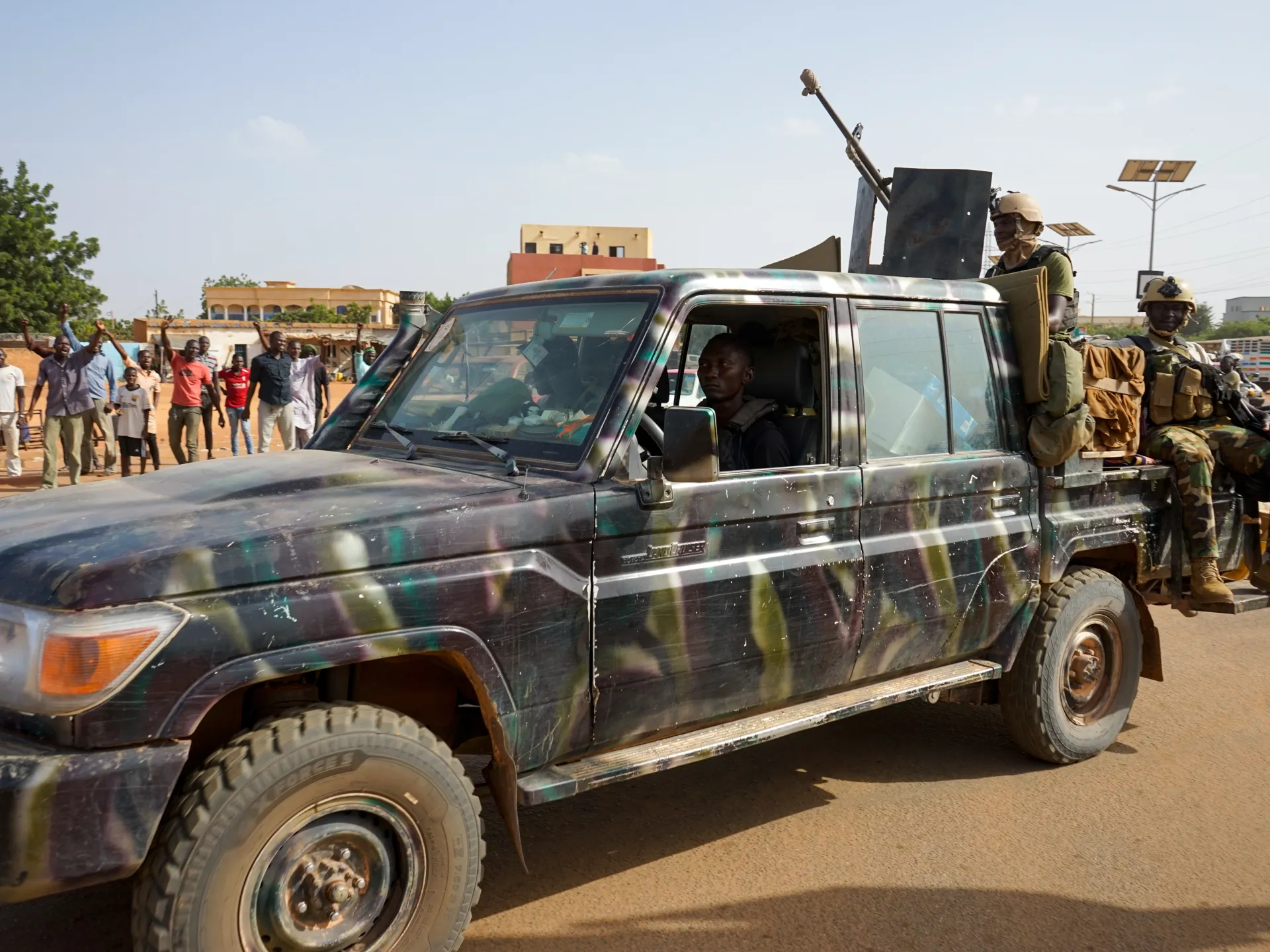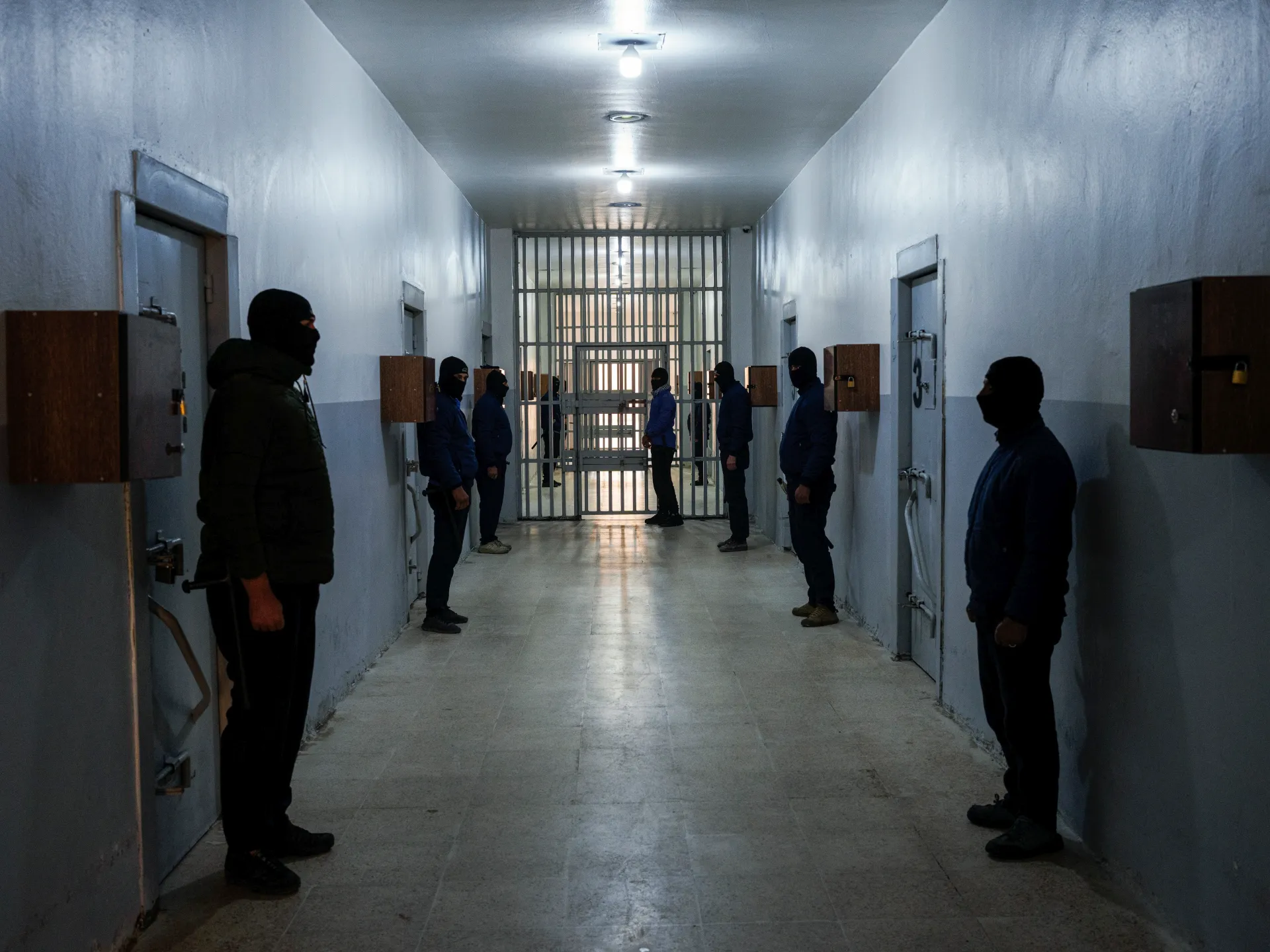US army launches retaliatory strikes on dozens of ISIL targets in Syria | Syria’s War News
Operation Hawkeye has killed and captured more than 50 ISIL fighters after hitting about 100 targets.
Published On 14 Feb 2026
United States forces have carried out a series of strikes against ISIL (ISIS) targets in Syria in retaliation for last year’s killing of two of its soldiers and an interpreter.
US Central Command (CENTCOM) said in a statement on Saturday that it attacked more than 30 ISIL targets in Syria between February 3 and 12, hitting the armed group’s infrastructure and weapons storage facilities with “precision munitions”.
Recommended Stories
list of 3 itemsend of list
CENTCOM said it launched the most recent attacks to “sustain relentless military pressure on remnants from the terrorist network”.
ISIL attacked US and Syrian forces near the historic city of Palmyra in December, killing Sergeant Edgar Brian Torres-Tovar, Sergeant William Nathaniel Howard, and Ayad Mansoor Sakat, identified as an American civilian interpreter.
Launched after the killings, Operation Hawkeye has killed and captured more than 50 fighters and hit about 100 ISIL infrastructure targets over the past two months, said CENTCOM.
The US military on Friday completed the transfer of thousands of ISIL detainees from Syria to Iraq, where they are expected to stand trial.
The prisoners were sent to Iraq at the request of Baghdad in a move welcomed by the US-led coalition that had for years fought against the armed group.
In other developments, the Syrian Ministry of Defence confirmed that government forces took control of the al-Tanf military base in the east of the country, which was run for years by US troops fighting ISIL.
The US-led coalition worked alongside the Kurdish-led Syrian Democratic Forces (SDF) in the battle that led to ISIL’s territorial defeat in Syria in 2019.
However, Washington has now drawn close to Syria’s new authorities, recently saying that the purpose of its alliance with the SDF was largely over.
The US withdrawal from al-Tanf comes as Damascus seeks to extend its control over all of Syria.

